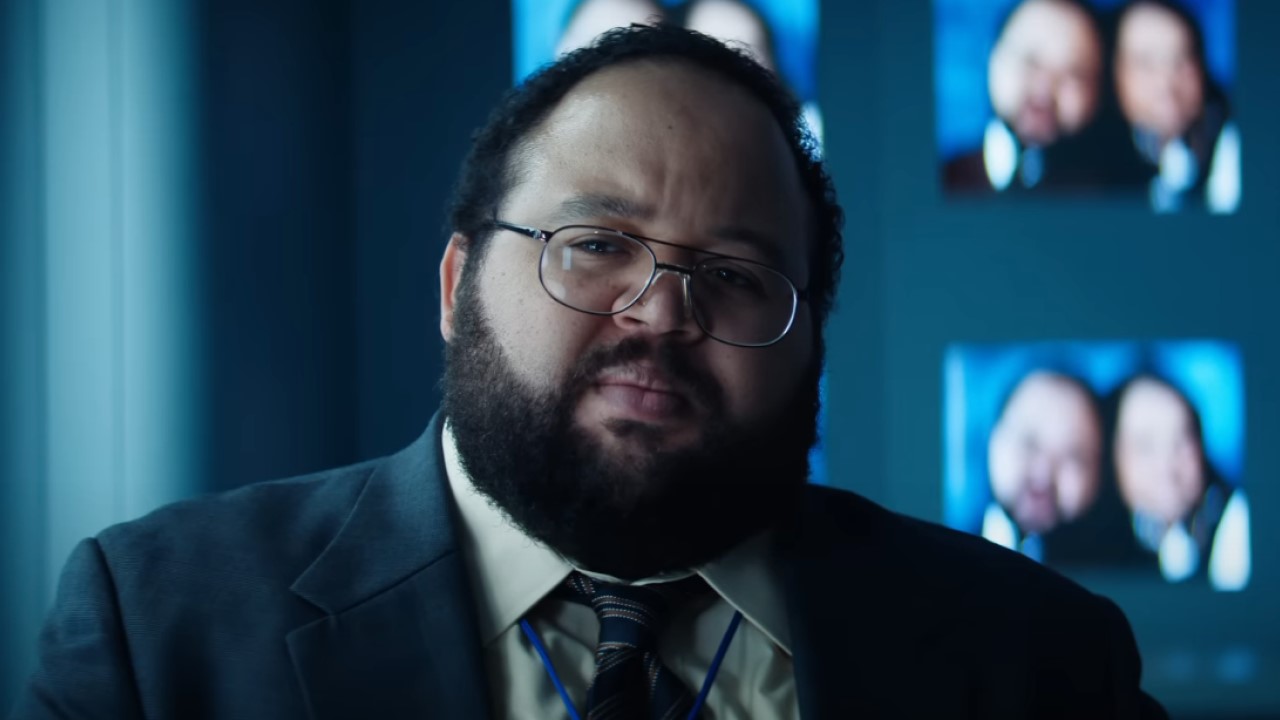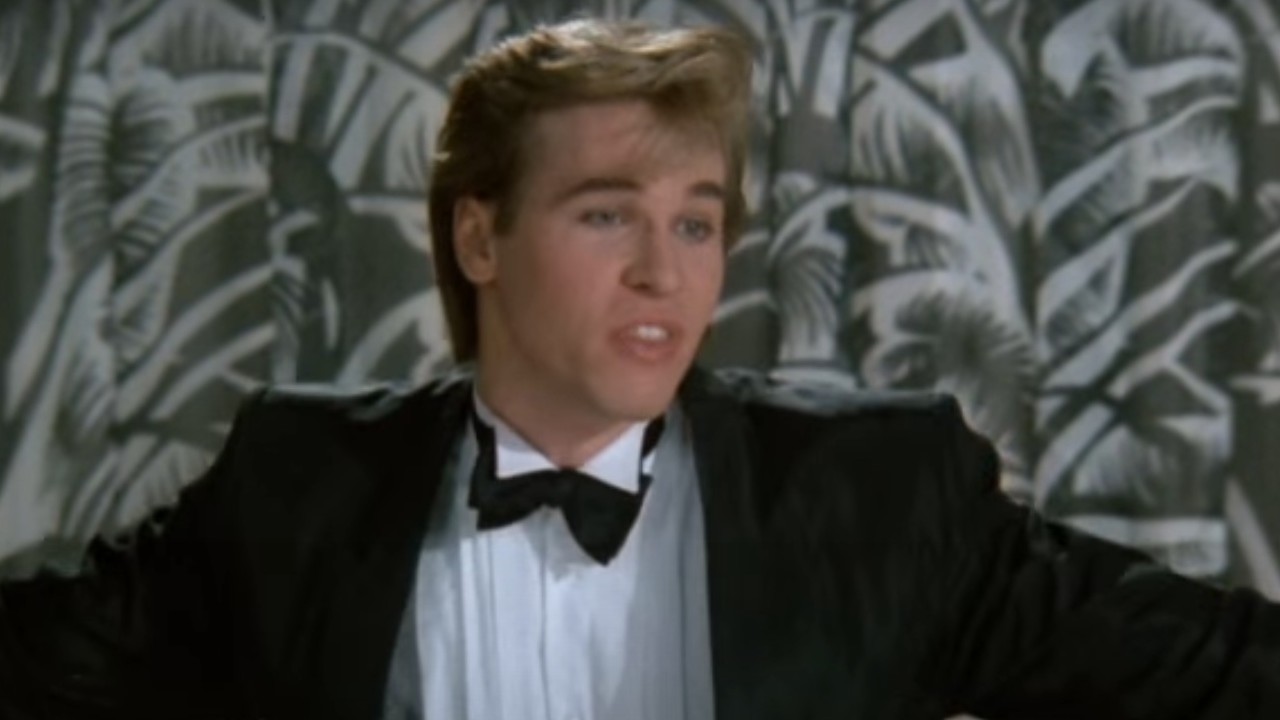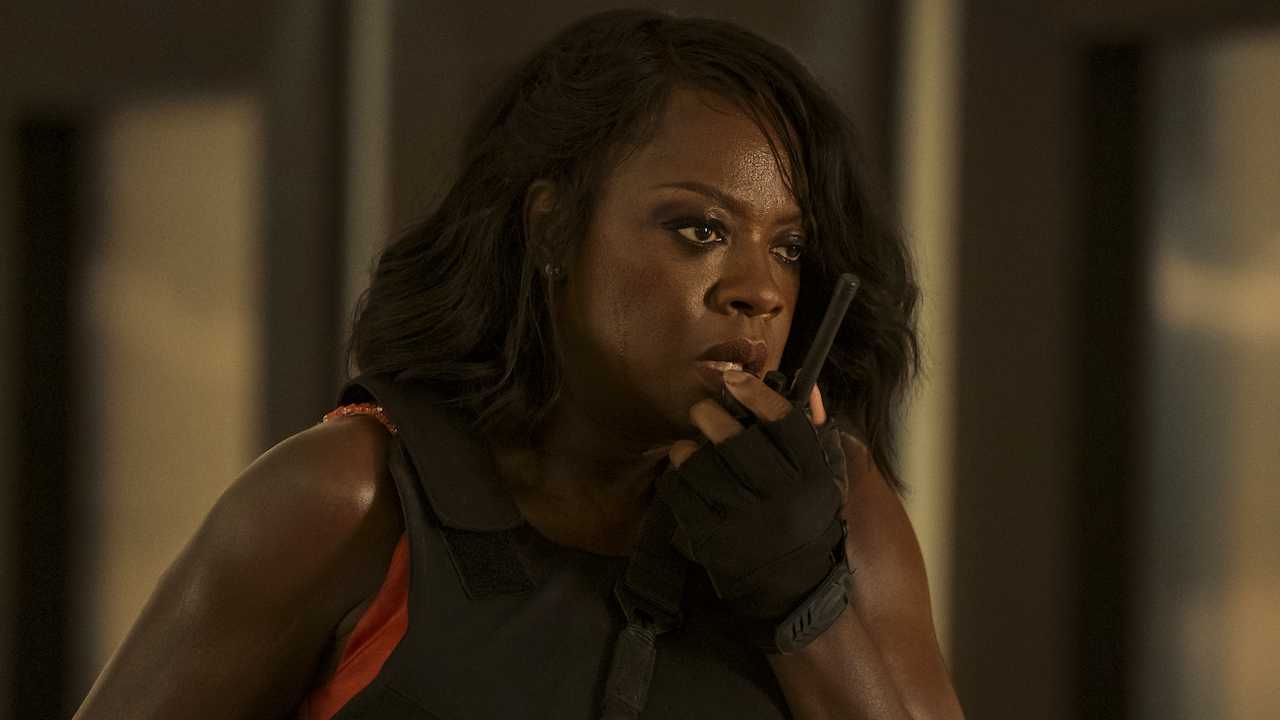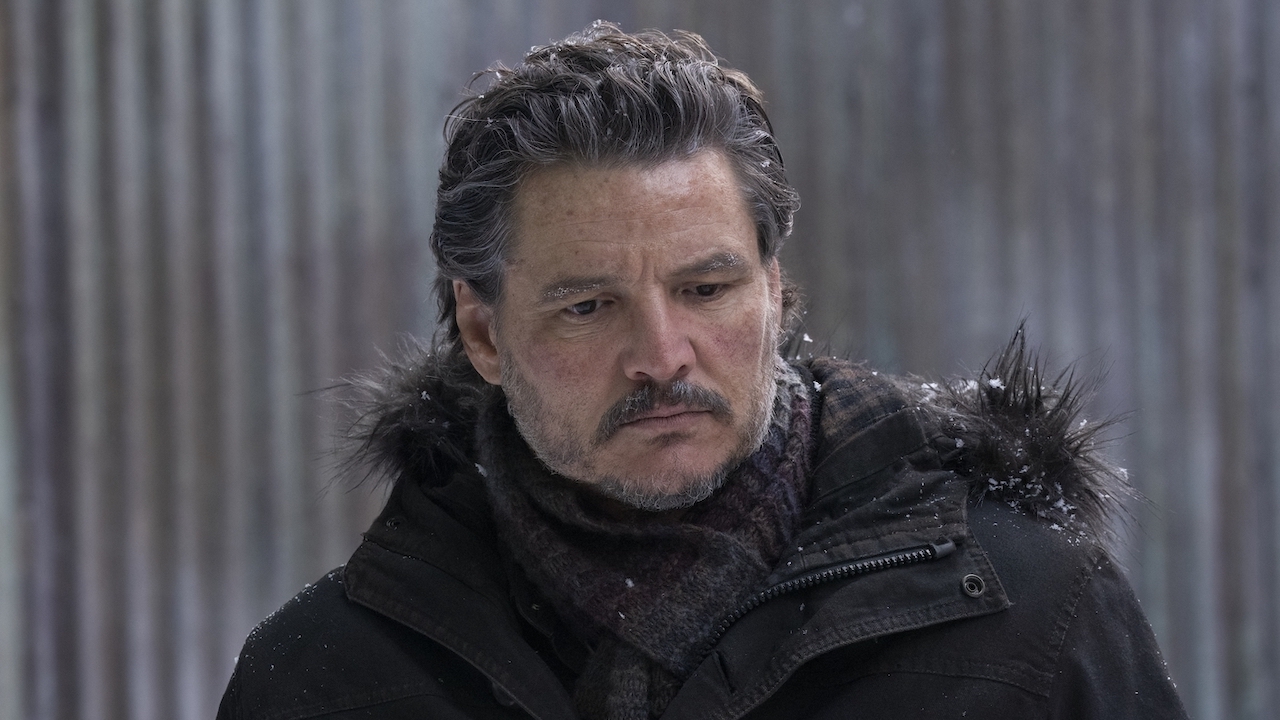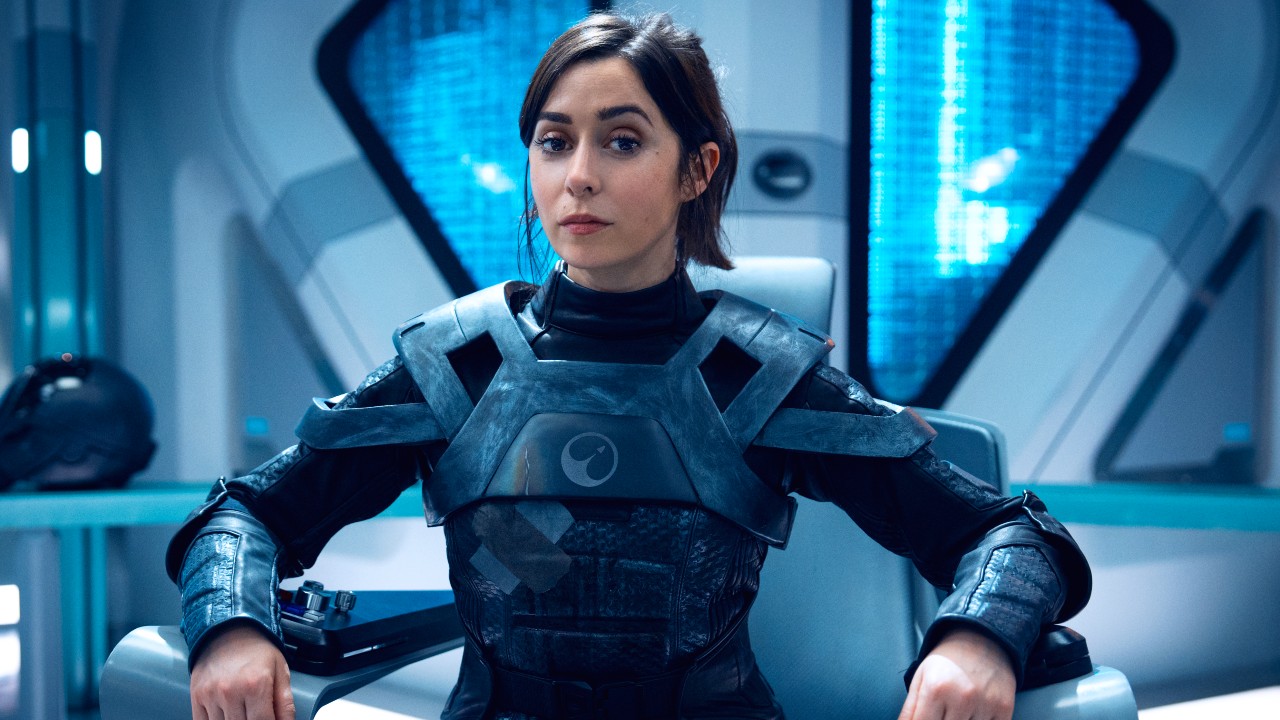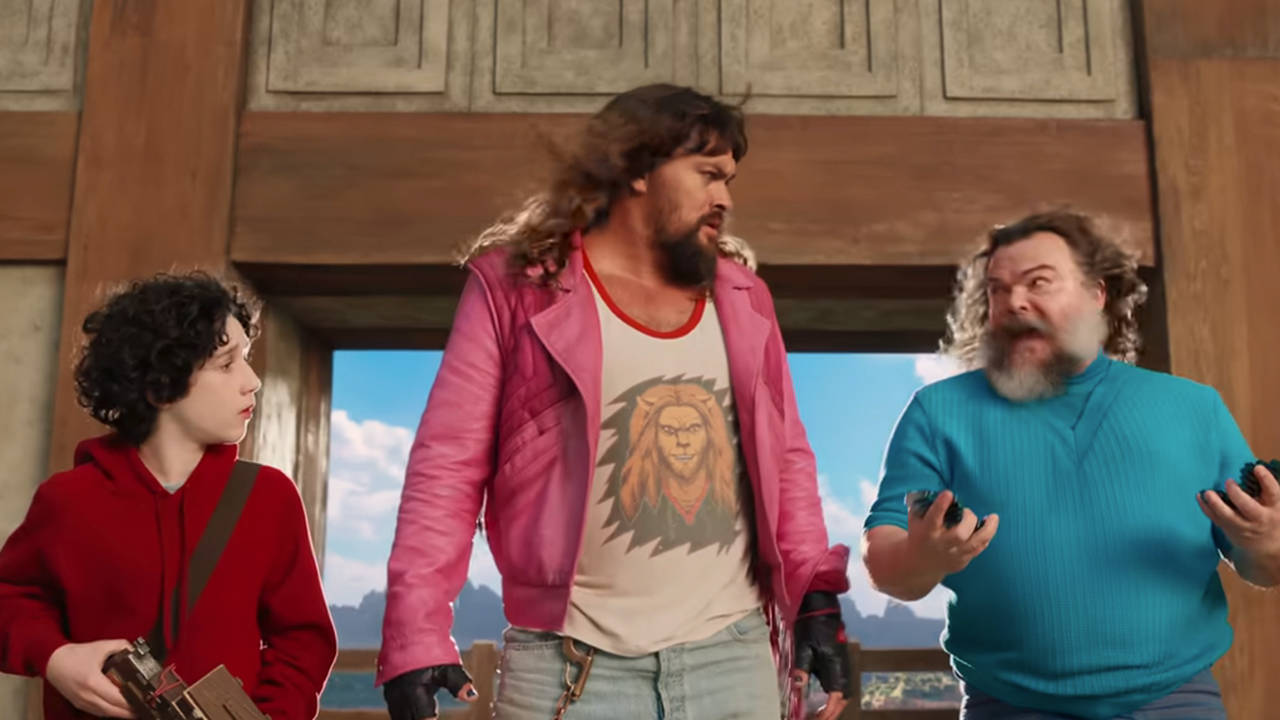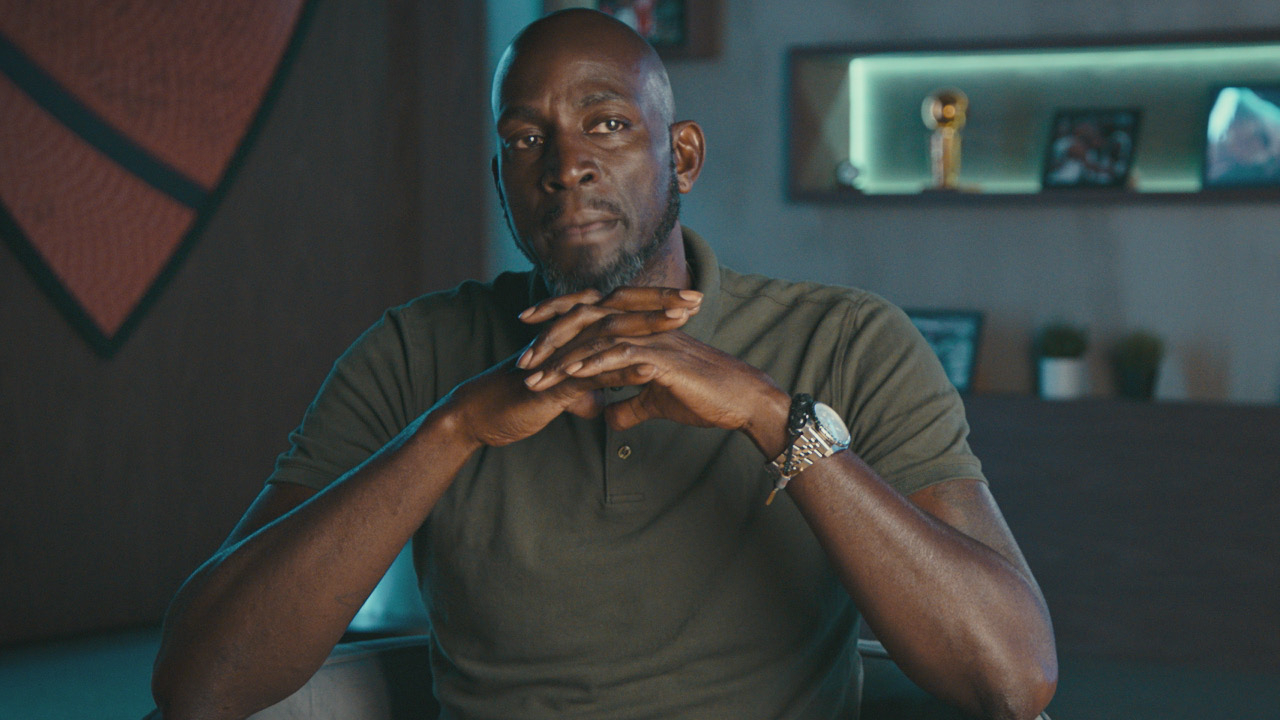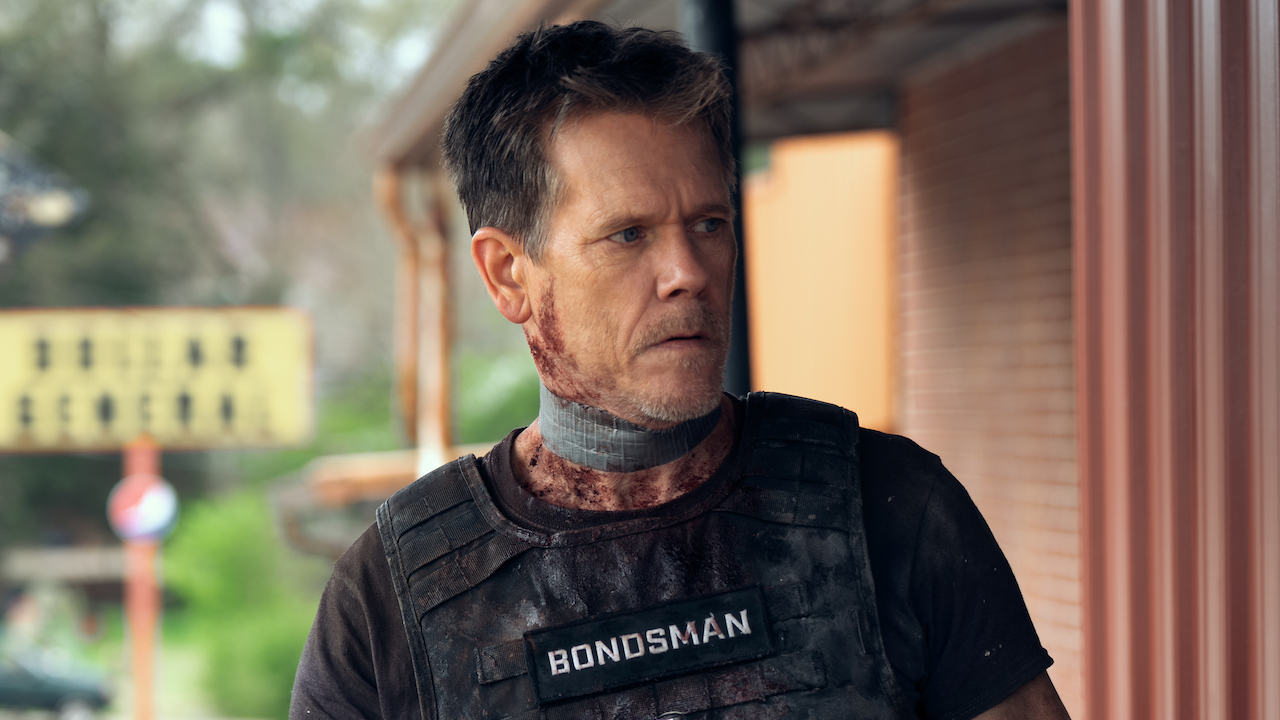Tom Hanks' Finch: Why Jeff Is One Of The Most Impressive Robots In Movie History
The story of Jeff and his personal growth is rather impressive.
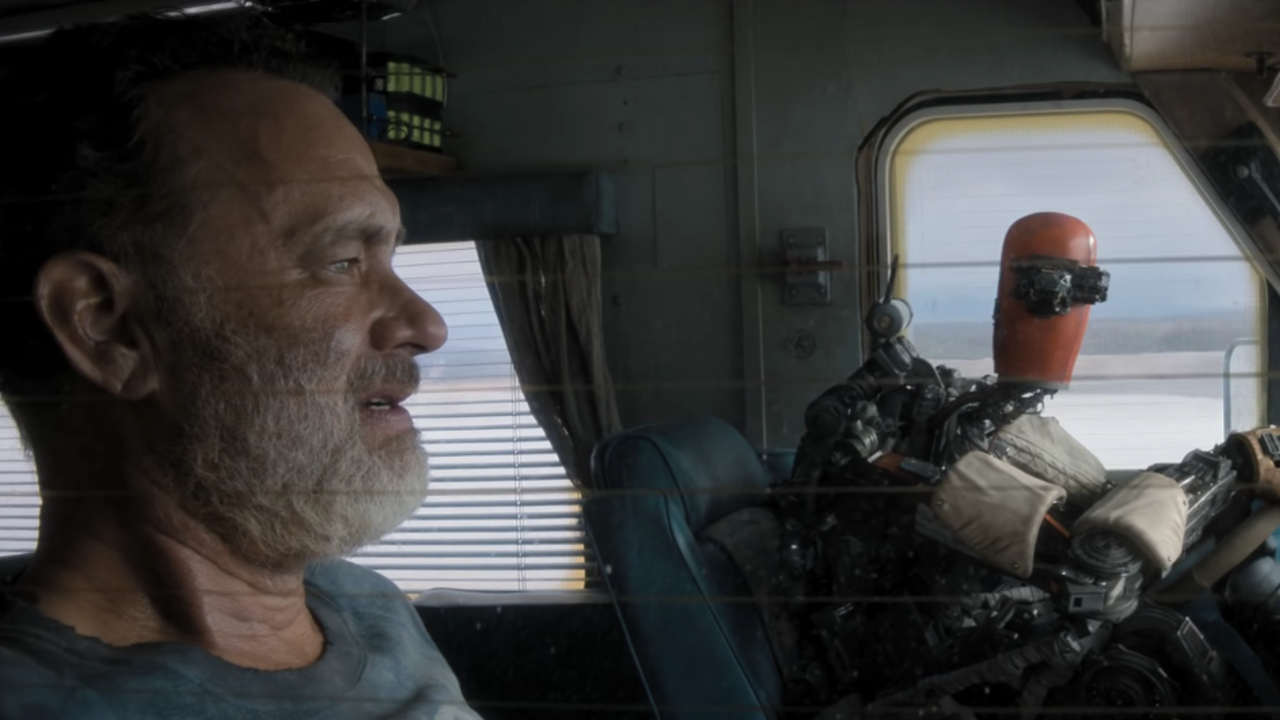
Warning: SPOILERS for Apple TV+’s Finch are in play. If you want to see Tom Hanks’ post-apocalyptic road trip as cold as possible, turn back and head to the safety of our twist-free coverage at CinemaBlend.
Going into the new Tom Hanks-led apocalypse dramedy Finch, the Apple TV+ original film promised something we’ve seen quite a few times in science fiction: an adorable robot. Sure enough, watching director Miguel Sapochnik’s outside the box road movie did deliver on just that. But rather than be content with merely giving the world an artificial intelligence that was perfect from square one, Finch’s Jeff (Caleb Landry Jones) actually proved itself to be one of the most impressive robots in movie history. Let’s take a look at how and why this feat was achieved, starting with a quick rundown of Jeff’s purpose in Finch’s world of desolation.
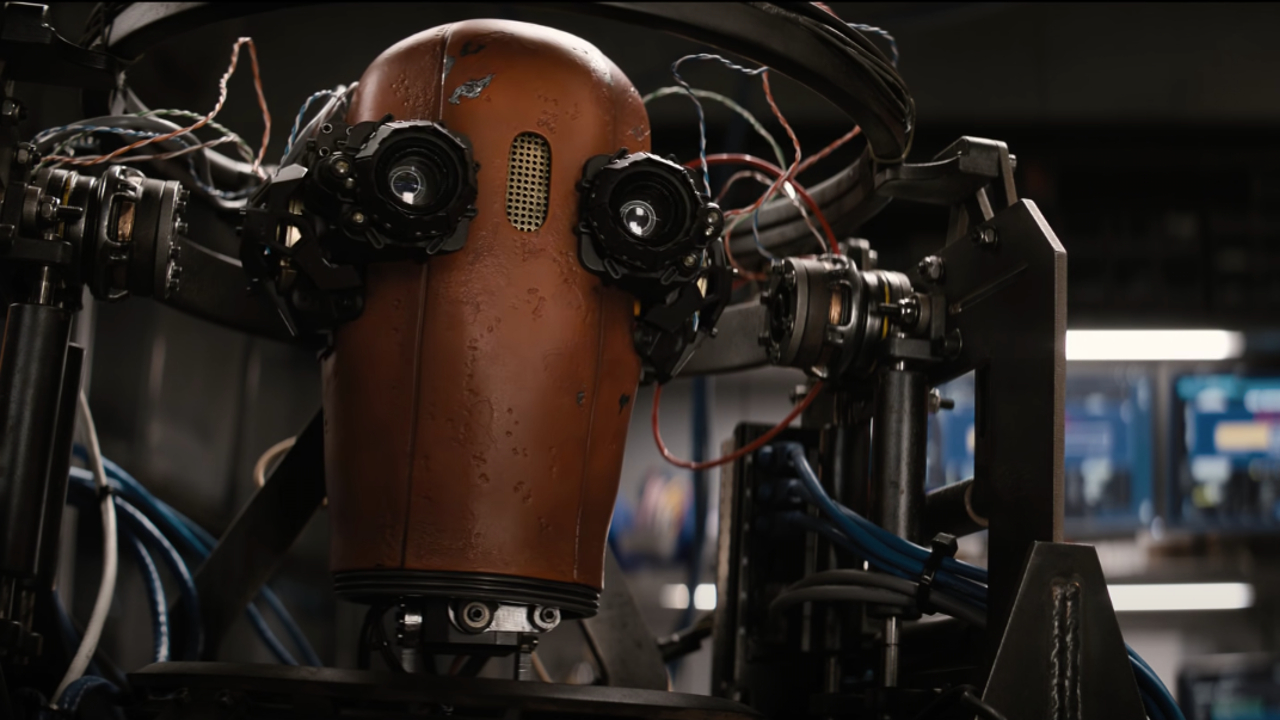
Meet Jeff, Tom Hanks’ Robotic Co-Star In Finch
Build by Finch Weinberg (Tom Hanks) himself, Finch’s robotic wonder didn’t have a name at first. We come to eventually know him as Jeff, and his purpose is one of those concepts that’s exceedingly simple on paper: he’s to be a caretaker to Finch’s dog Goodyear (Seamus) when he’s “absent.” In the case of Finch’s emotional narrative, “absent” means dead, as Finch is slowly dying from the effects of ionized radiation. On the surface, Jeff is meant to be Finch’s creation. However, it almost feels like Jeff is his symbolic child, as Finch’s lessons are more like a father teaching their son, rather than a creator and a creation.
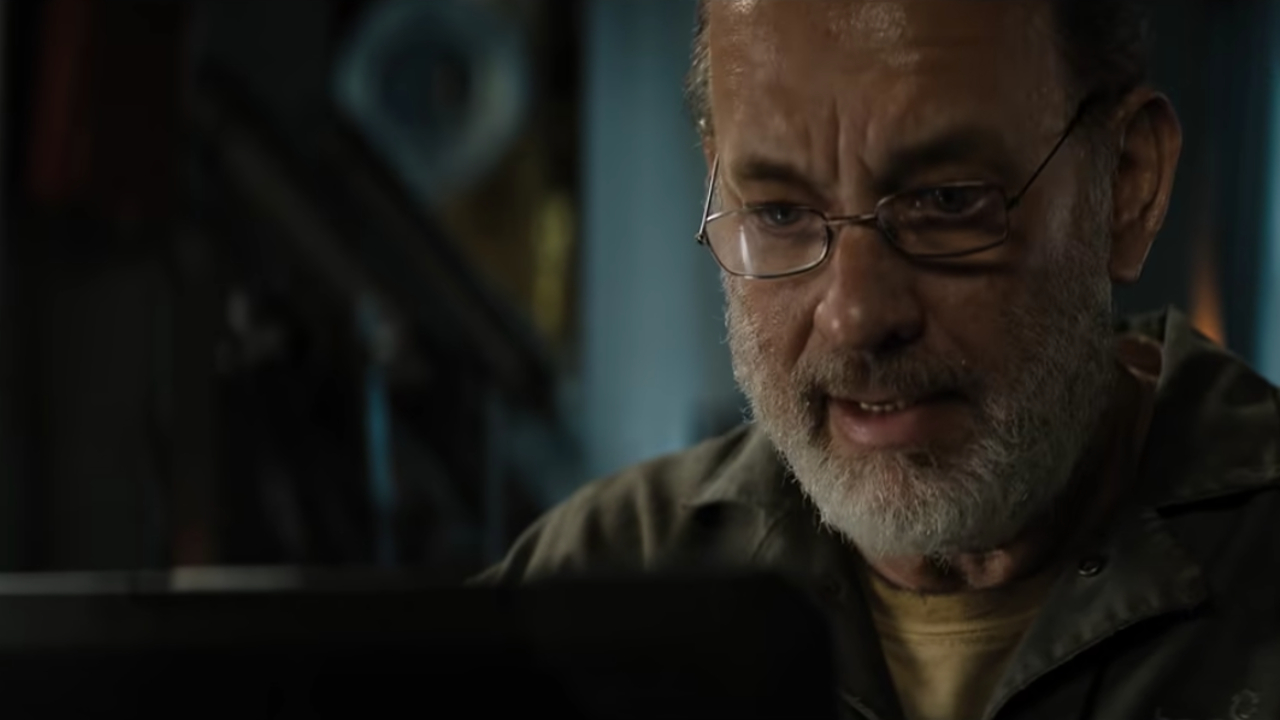
All Of Finch’s Impressive Feats With Jeff Happen In A Subpar Situation
Being able to build a robot and program it successfully in the apocalypse is a pretty impressive feat. However, Finch gives its titular hero and his metallic buddy two stumbling blocks to overcome. Not only are all of the things we’re about to mention a result of Finch and Jeff merely being a good pair, but it all happens with a robot that carries roughly 75% of the knowledge he was intended to contain. Plus, thanks to the solar flare frying power grids and electronics on the whole, there’s no internet to be found. And yet, Jeff flourishes in the face of such obstacles, and with no conscious intention on Finch's part to create an organically-impressive AI.
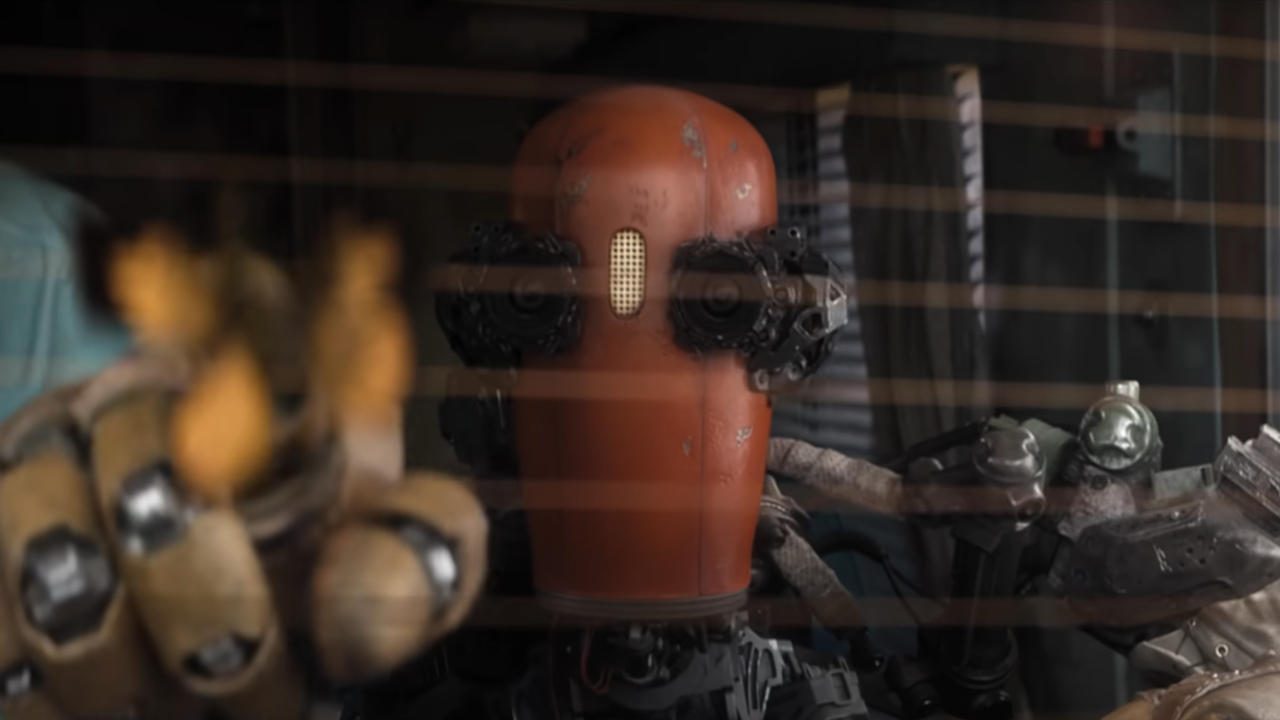
The Progress Of Jeff’s Growth In Finch Is At A Reasonable, But Impressive Rate
Through the work of screenwriters Craig Luck and Ivor Powell, as well as the character work that Caleb Landry Jones provides to Finch’s central robot, Jeff’s evolution comes across as very organic. Again, Jeff isn’t a perfect creation from a sterile tech giant’s assembly line. Finch had to manually scan and upload tons of book knowledge to get Jeff to where he is upon being turned on. Everything that happens after that point occurs at a reasonable rate that marks a refreshing change of pace for an artificially intelligent creation.
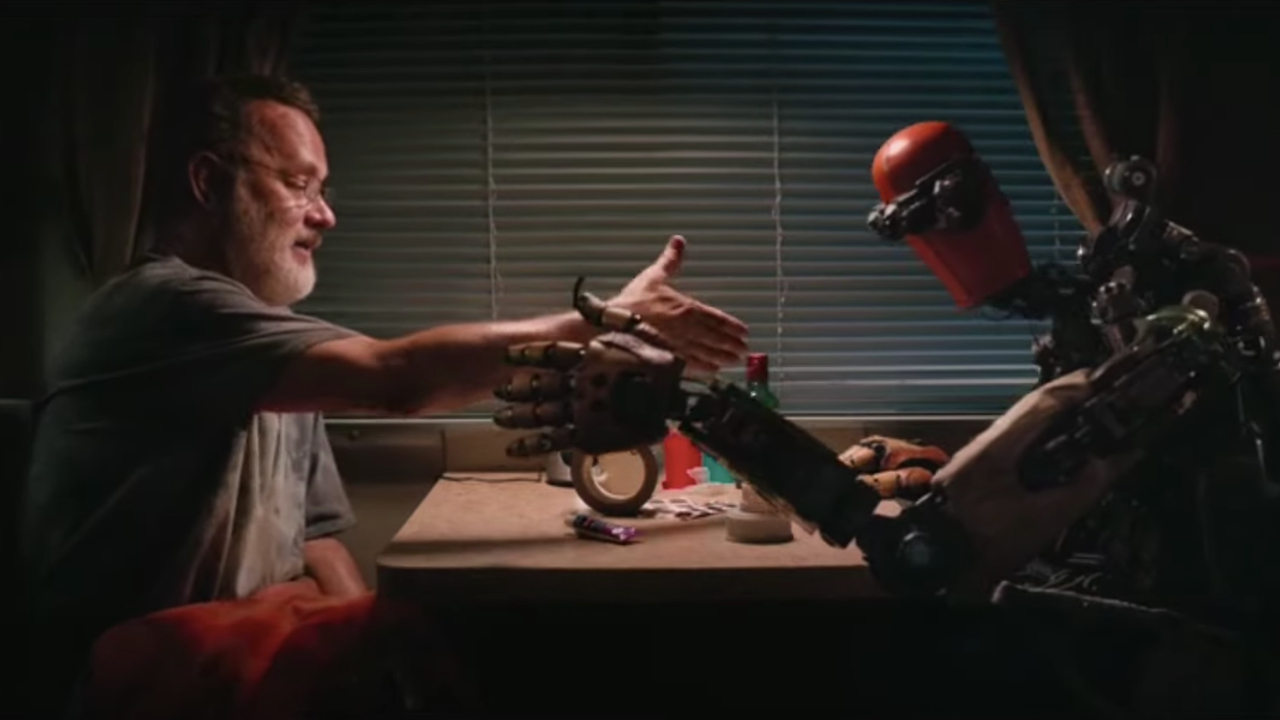
Finch’s Robot Actually Names Himself
In an important, but also endearing scene from Finch, Jeff has a conversation to try and figure out what his name should be. He even goes through several options, like "Rover," and tweaks his process thanks to Finch’s feedback on a proper human name. Landing on “Jeff,” the robot at the heart of Finch has not only learned how to feed and care for a dog, he’s also built an actualized image of himself. The Jeff we see at the end of Finch is vastly different from the one that we were introduced to when Tom Hanks switched him on in the lab.
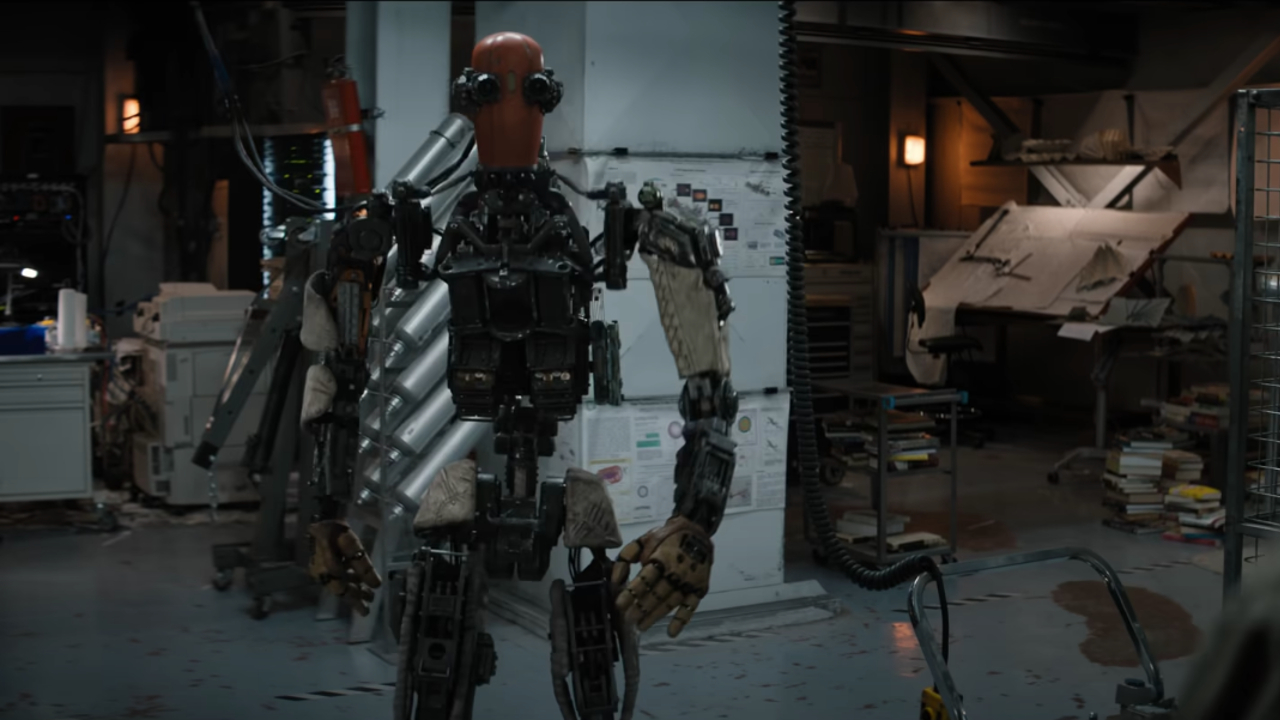
Jeff Organically Grows A More Human Personality
Picking a name was just the beginning, as Finch sees a digital intelligence developing in real time throughout the road trip that ensues. Caleb Landry Jones’ performance as Jeff is an absolutely noteworthy experience, which is part of what helps sell Jeff’s progression as a thinking machine. Through mistakes made, lessons learned and intent listening, Finch’s assistance in Jeff’s evolution progresses at enough of a natural pace that you can realistically believe to be possible.
CINEMABLEND NEWSLETTER
Your Daily Blend of Entertainment News
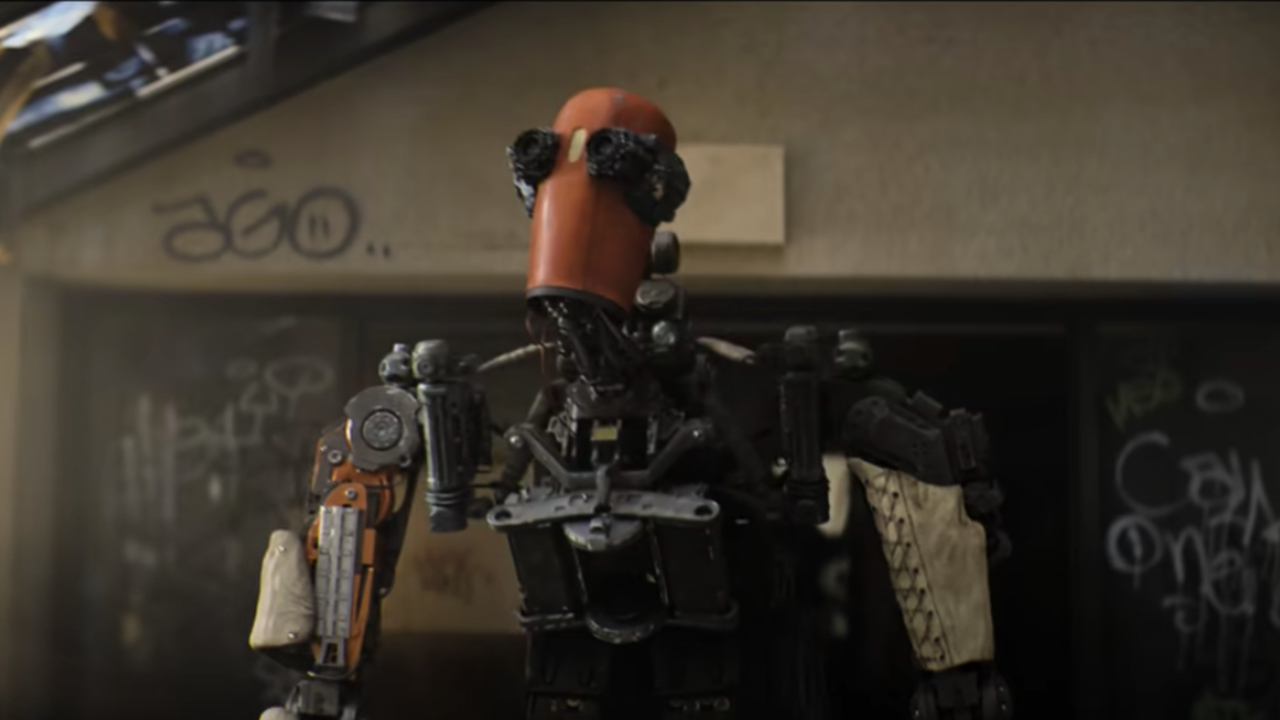
Mistakes Can Actually Be Made By Jeff, And They Are
When a robot makes a mistake, it can be hysterical or heartbreaking. Finch mines both ends of the spectrum, with Jeff making small mistakes like falling down, as well as big slip-ups like the time he falls into another human’s trap while looking for supplies. The trial and error approach to Jeff’s life doesn’t just apply to small tasks like naming himself, but also major decisions he makes to try and fulfill his purpose as Goodyear and Finch’s robotic assistant. It’s a spectrum that helps sell the development of Jeff as a personality, instead of merely a device.
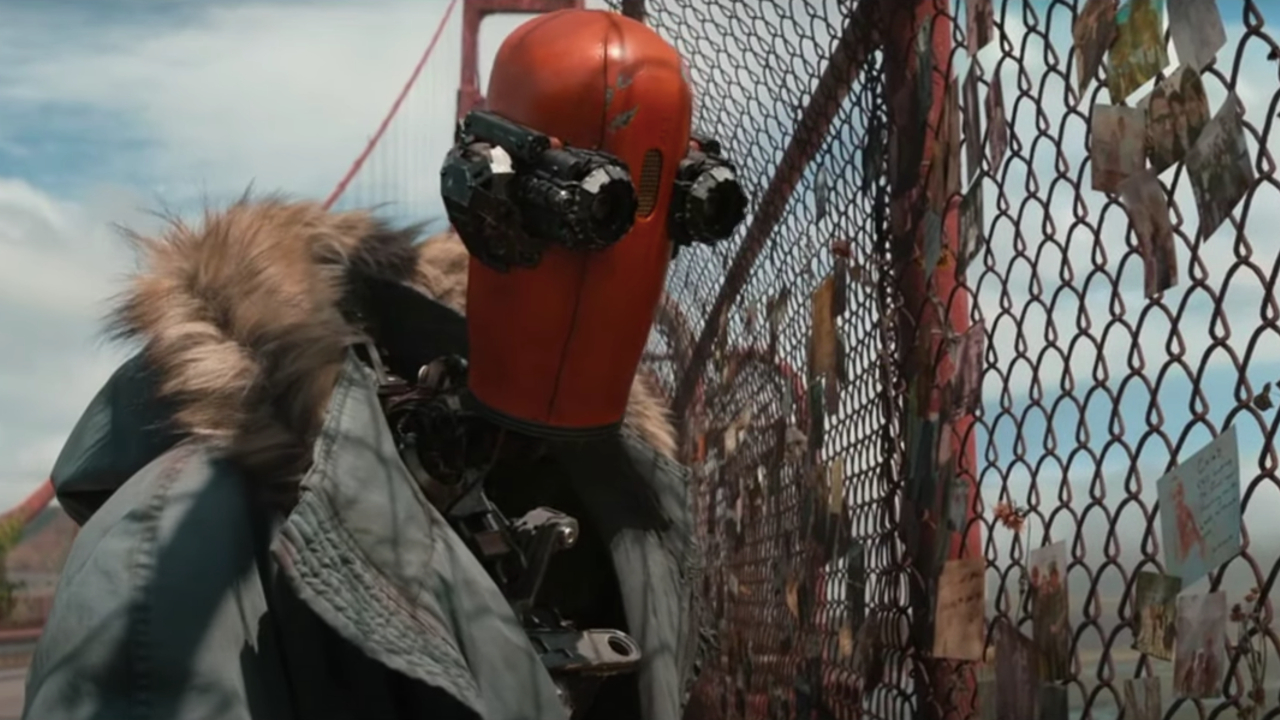
Towards The End Of Finch, Jeff Proves He Can Dream
Finch ends with Jeff and Goodyear making it to the Golden Gate Bridge as planned, with Finch sadly passing before that point. Even knowing that Jeff is dying and his purpose is to be there for Goodyear when he does, that doesn’t stop Finch from dreaming. Having a vision that the three of them would make it to San Francisco together is perhaps the glue to Jeff’s impressive existence, as he’s allowed to have hopes that exceed statistical probability. Finch’s robotic co-star dreams, therefore he can reach for aspirations beyond logic and programming.
Instead of just providing the world with another robot that’s either naturally sassy or destructively perfect by design, Finch gives us an android that we can root for. It’s easy to want Jeff to succeed because his imperfections and abilities remind us of being human ourselves. Rather than existing as a character pre-programmed to provide us an entertaining respite from the apocalypse, Caleb Landry Jones’ performance shows us a child being raised to do better.
Through his interactions with Tom Hanks’ eponymous character, Finch shows Jeff becoming human in the sense that he develops through learning. For a robot that’s only operating on 75% of the knowledge he was supposed to have, Jeff fills in that last quarter rather well by just being himself. Without taking any shortcuts, and through the aid of well-crafted character flaws, Finch’s central robot is one of the most impressive robots at the movies because he represents humanity’s potential to be a force for good. For once, our creation amplifies the better angels of our nature, rather than a message in hubris; and seeing Jeff flourish feels good as a result.
If you haven’t seen the film just yet and wanted to spoil yourself silly, Finch is currently streaming on Apple TV+. Tom Hanks fans can also check out what other movies he has in the works through the catalog of upcoming Tom Hanks movies. Plus, if you’re looking to see what 2021’s release schedule has in store, now feels like a great time to familiarize yourself with the rest of the year’s entertainment options.
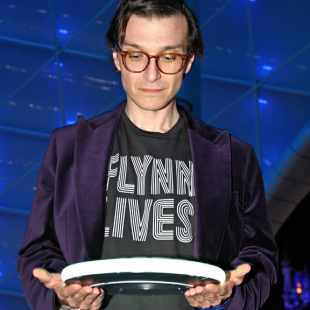
Mike Reyes is the Senior Movie Contributor at CinemaBlend, though that title’s more of a guideline really. Passionate about entertainment since grade school, the movies have always held a special place in his life, which explains his current occupation. Mike graduated from Drew University with a Bachelor’s Degree in Political Science, but swore off of running for public office a long time ago. Mike's expertise ranges from James Bond to everything Alita, making for a brilliantly eclectic resume. He fights for the user.
